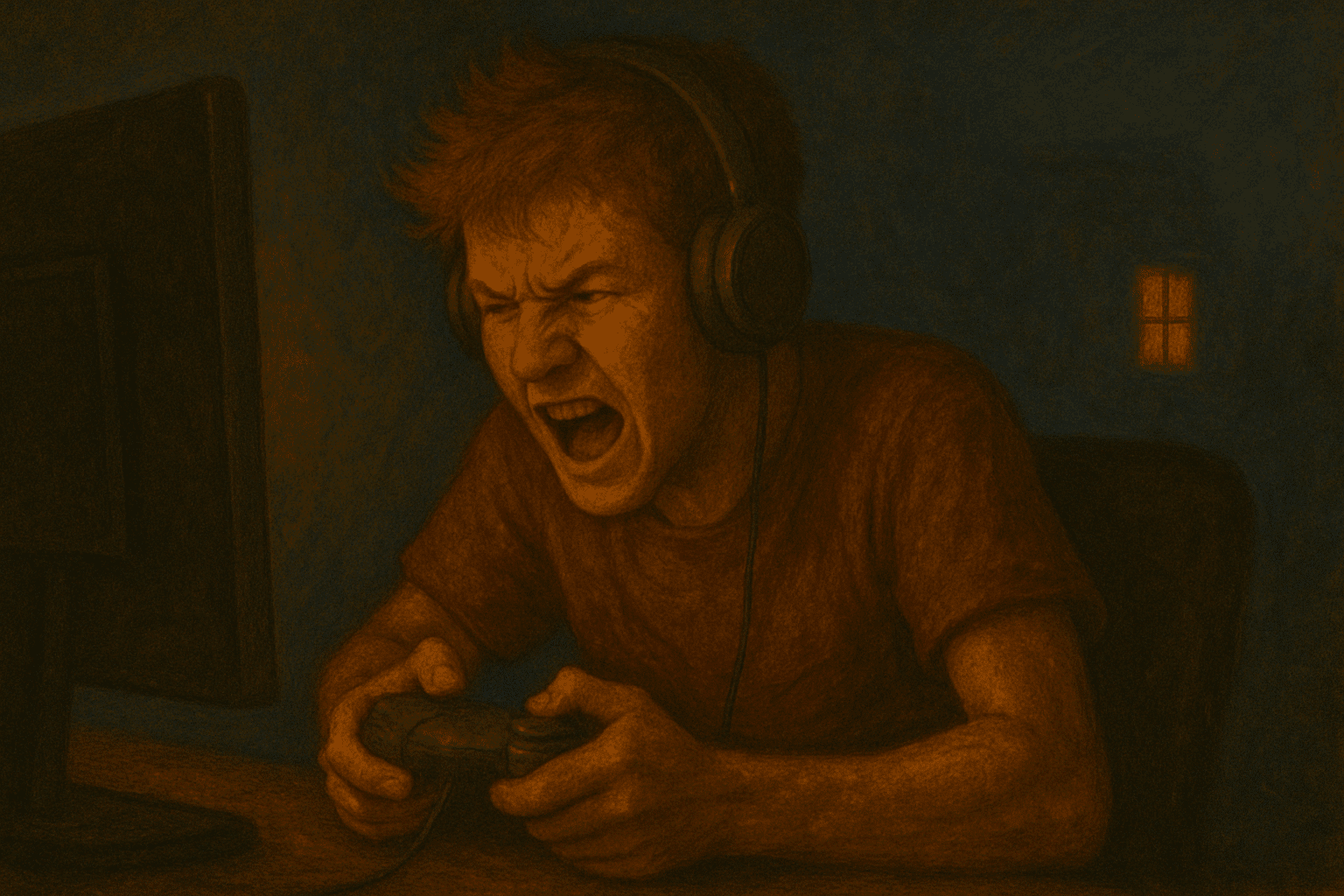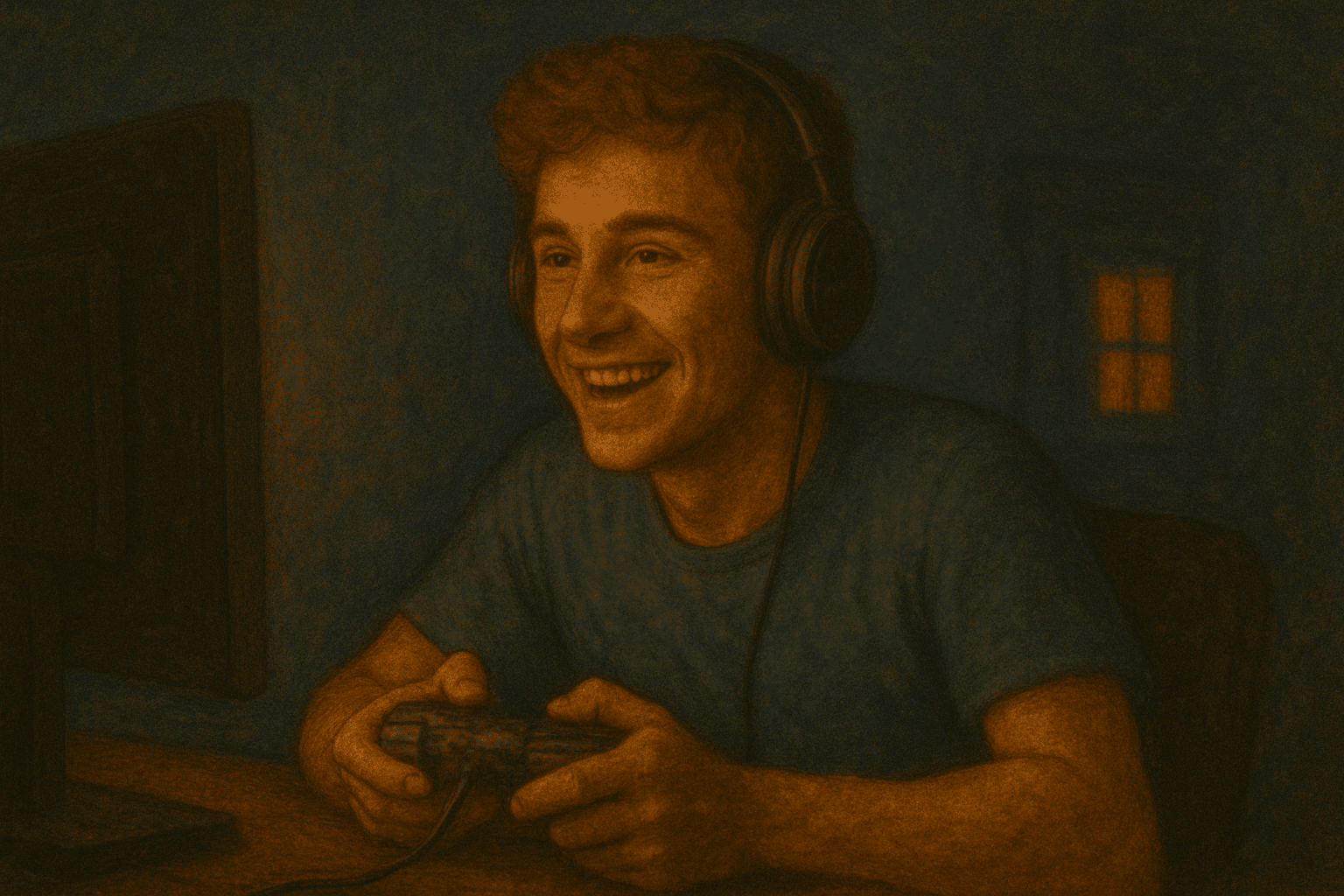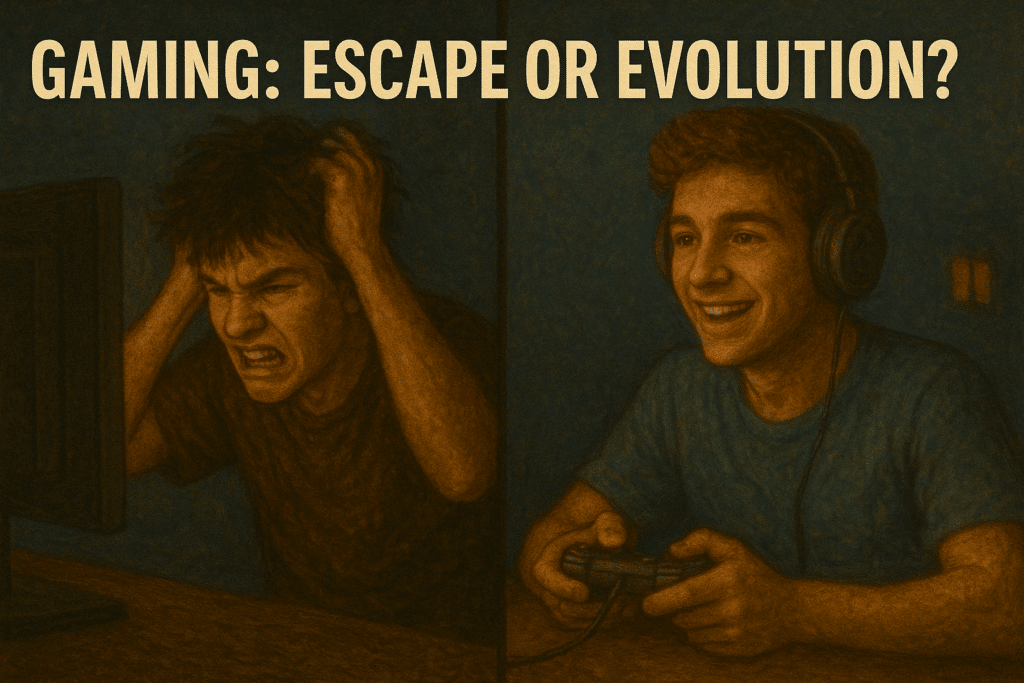In a buzzing city neighborhood, among the rows of modest homes and apartment buildings, lived two young men — Omar and Zain. They were neighbors, went to the same school, and shared one big passion: gaming
From a young age, both were drawn to the flashing screens, digital worlds, and competitive thrills. But what followed for each of them shows how the same passion can lead to entirely different outcomes, depending on how it’s handled.
The Obsession That Took Over – Omar’s Path
Omar was known in his house as “the ghost.” He’d vanish into his room after school and wouldn’t be seen until late at night. Meals were often skipped or eaten cold, and conversations became one-word replies. His parents grew worried, but every time they tried to talk, he snapped.
“Just let me play in peace. It’s not like I’m out causing trouble.”
The games were more than just entertainment for Omar — they became an escape. Frustrated with school, feeling misunderstood at home, gaming offered a place where he felt in control, powerful, and validated.
But over time, his grades dropped. His mood became erratic. His younger siblings stopped knocking on his door. His parents stopped expecting him at dinner. He was physically present but emotionally absent.
And most painful of all, when things went wrong in the game — a lost match, a slow teammate — he would slam his keyboard or shout in rage. That anger often spilled over into his real life. His little brother once asked him for help with homework and was met with a cold, irritated glare.
At first, it was “just a phase.” But as months turned into years, the damage became harder to ignore.

The Balanced Gamer – Zain’s Path
Zain, on the other hand, loved games just as much. He’d look forward to playing in the evening, setting up time with friends to join in online battles or explore stories in adventure games. But he treated games like dessert — a reward, not the main course.
His parents noticed that Zain kept his promises. Homework was done before game time. He’d play with his younger sister when she was bored. He’d join his parents for evening tea, phone down, ears open.
He laughed while playing, sometimes even lost badly. But he rarely raged. Instead, he learned — about strategy, patience, team coordination. And slowly, he started noticing the lessons from games slipping into his real life: resilience, communication, planning ahead.
When his parents needed help with something technical, he was the first to jump in. When his friends had a fight, he helped them sort it out — “like solving a co-op level,” he once joked.
To Zain, games were fun. But life was the real adventure. And he was playing both wisely.

Two Gamers, Two Roads
One evening, both Omar and Zain were invited to a school seminar on careers in the gaming industry. A developer spoke about how games are more than just fun — they’re built by storytellers, artists, psychologists, coders, and project managers.
Zain’s eyes lit up. He asked thoughtful questions, stayed back to chat with the speaker. That night, he told his parents he wanted to pursue game design. They were hesitant but proud. “You’ve earned our trust,” his father said.
Omar, however, rolled his eyes halfway through and left early. “They don’t get it. I just want to play, not make stuff.”
He went home and played till 3 a.m. — rage quitting three matches and blaming teammates in every one.
The Lesson Within the Screen
Games aren’t the enemy.
They’re tools — and like any tool, they can build or destroy. It all depends on how you use them.
Scenario One: Escaping Reality If you use games to run away from responsibilities, ignore real-life pain, or avoid growing up, then no matter how good you get at them, you’ll struggle outside the screen. The game may give temporary satisfaction, but the real world will start to fall apart.
Scenario Two: Embracing Balance But if you enjoy games while still honoring your duties, respecting your family, and learning from both wins and losses, then gaming becomes a skill — a healthy habit that strengthens you instead of weakening you.
Parenting and Perspective
This isn’t just a story about kids.
Parents, too, have a role to play. Yelling or banning games often pushes children deeper into isolation. But showing interest, setting boundaries with love, and guiding them to see value beyond the screen — that can transform gaming into growth.
The Golden Rule for Life and Gaming
Whether it’s school, relationships, or even gaming
” It’s not what you do, it’s how you do it. “
You can ruin your life with a passion if you use it to escape.
Or you can build your life with it if you use it to grow.
The choice is always in your hands.
So the next time you pick up a controller or load a game, ask yourself:
Am I escaping something?
Or am I enhancing who I am?


